
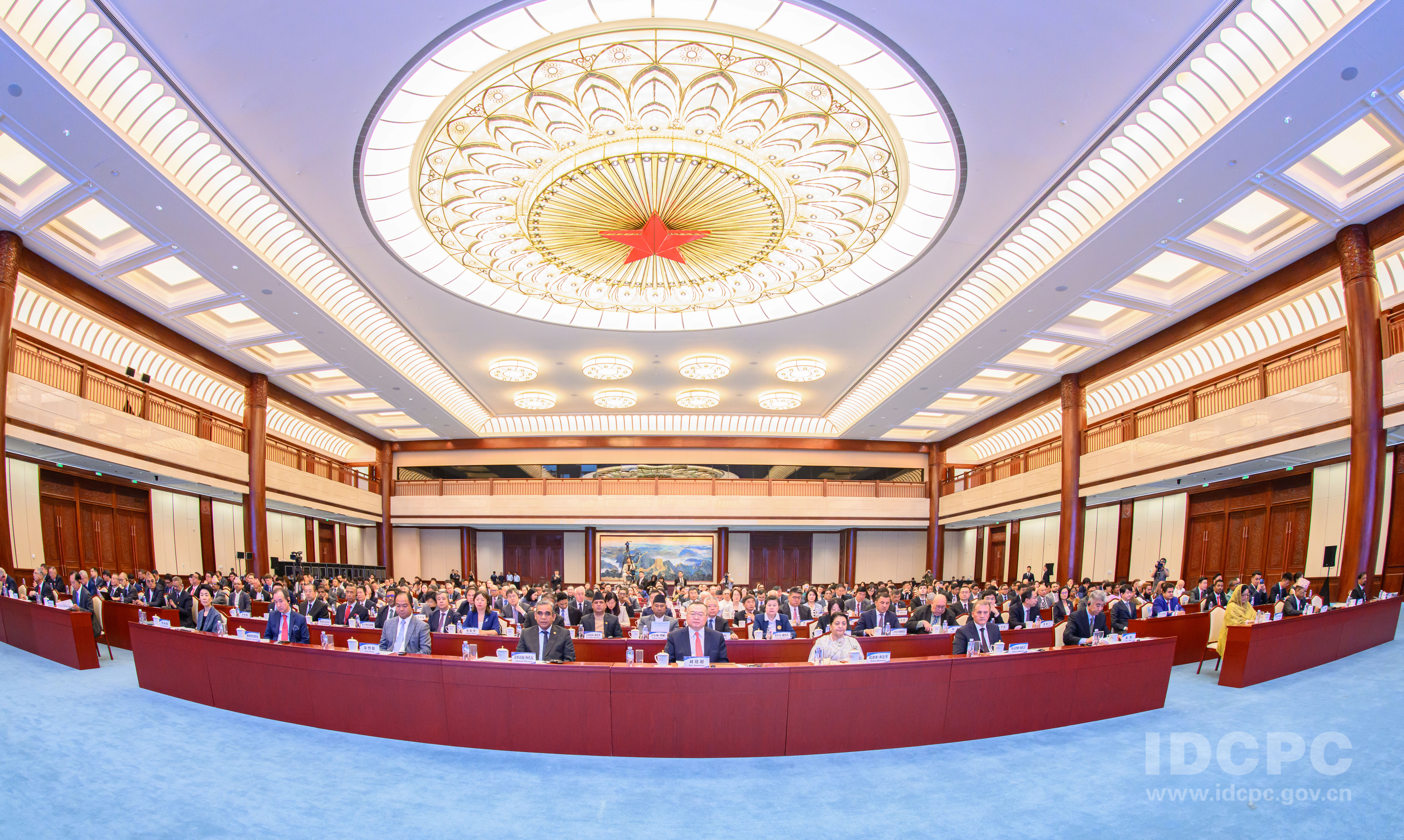
From May 25th to 26th, the CPC in Dialogue with Political Parties of Neighboring Countries, themed "Building a Community with a Shared Future with Neighboring Countries: Political Parties in Action", was held in Beijing. Anwar Ibrahim, President of the People's Justice Party (PKR) and Prime Minister of Malaysia, Shahbaz Sharif, President of Pakistan Muslim League-Nawaz (PML-N) and Prime Minister of Pakistan, and Paetongtarn Shinawatra, President of the Pheu Thai Party and Prime Minister of Thailand sent congratulatory letters to the event. Liu Jianchao, Minister of the International Department of the CPC Central Committee (IDCPC), attended the event and delivered a keynote speech. More than 200 people, including leaders of political parties of neighboring countries from Northeast Asia, Southeast Asia, South Asia, Central Asia and Russia, some diplomatic envoys in China, representatives of think tanks and media, business communities and representatives from the Chinese side, were present.

Anwar said in the congratulatory letter, as the current chair of ASEAN, Malaysia admires China's leading role in strengthening regional unity, mutual trust, exchanges and connectivity, and appreciates China's important global initiatives and contributions to promoting regional harmony, resilience and progress. Malaysia is willing to work with China and other parties in the region to enhance people-to-people friendship, expand practical cooperation and jointly address the challenges of the times.
Shahbaz said in the congratulatory letter, in the complex global situation, regional countries must strengthen unity and deepen cooperation. Pakistan highly appreciates President Xi Jinping's important international concepts and global initiatives, as well as the goals and directions set by the CPC for promoting the common interests of neighboring countries. Pakistan is willing to work hand in hand with China and other regional countries to jointly promote the realization of the vision of peace and the sustainable development goals.
Paetongtarn said in the congratulatory letter, the exchanges and dialogues between the CPC and the political parties of China's neighboring countries are conducive to the consolidation and development of Thailand-China relations, as well as to promoting mutual understanding and trust among regional countries. This year marks the 50th anniversary of the establishment of diplomatic relations between Thailand and China. Thailand is firmly committed to developing its relations with China and looks forward to achieving more fruitful results in cooperation in various fields between the two countries.
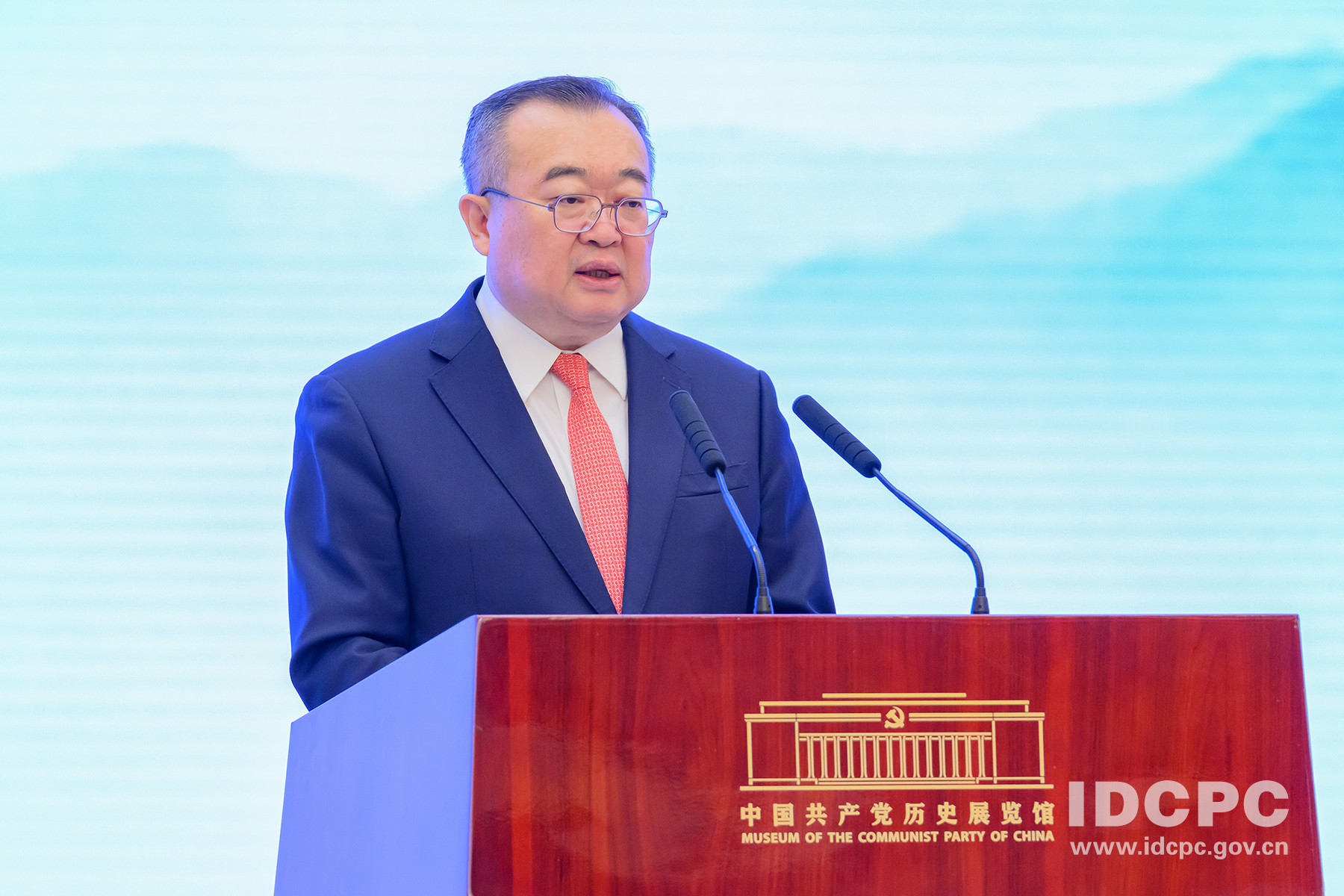
Liu said in the keynote speech, China is the major country with the largest number of land and maritime neighbors. For a long time, China has been practicing the policy of developing friendship and partnership with its neighbors and the principle of acting in good faith and being friendly to others, amity, sincerity, mutual benefit and inclusiveness. China is committed to building a community with a shared future with its neighboring countries. China's relations with its neighboring countries are at the best stage in modern times. At the same time, the world is in a period of turmoil and instability. China and its neighboring countries have entered a higher stage of development and are facing new goals and tasks. Against this background, the CPC held the central conference on work related to neighboring countries, deeply thinking about and answering the questions of what kind of relations with neighboring countries China needs to build under the new circumstances, what kind of policy towards neighboring countries China will follow, and how to work together with neighboring countries to build a common home in the neighborhood.
Liu elaborated on four pillar issues of China's relations with its neighboring countries, stating that peace and security are the prerequisites for a favorable surrounding environment. China regards promoting peace, stability and development in its neighborhood as its responsibility and is willing to work with neighboring countries to jointly build an Asian security model featuring mutual assistance, seeking common ground while reserving differences, and dialogue and consultation, and to jointly explore the establishment of a more balanced, effective and sustainable security framework in the neighborhood. Development and prosperity are the foundation for building a favorable surrounding environment. China will continue to deepen development integration with neighboring countries, deepen high-quality Belt and Road cooperation, and build a more closely integrated and open regional common market. People-to-people bond is the link for building good relations with neighboring countries. China will actively promote exchanges and mutual learning with neighboring countries, introduce more practical measures, and enhance mutual understanding and friendship among the people. Strategic mutual trust is the core of a favorable surrounding environment. China is willing to further carry forward traditional friendship and strengthen strategic communication with neighboring countries, support each other on issues concerning core interests and major concerns, and jointly pursue the path of independent development, mutual respect, equality and mutual benefit, openness and inclusiveness, and win-win cooperation with Asian characteristics.
Liu said, neighboring countries are China’s priority in its diplomacy. China will continue to hold high the banner of a community with a shared future for mankind, actively practice the principles and concepts of fostering an amicable, secure and prosperous neighborhood, amity, sincerity, mutual benefit and inclusiveness and a shared future, and work with all countries and parties in the neighborhood to pool wisdom and efforts and move in the same direction on the basis of understanding and mutual trust, jointly uphold the four pillars of security, development, civilization and mutual trust, and build a common home for us to take shelter from the storm in a turbulent era.
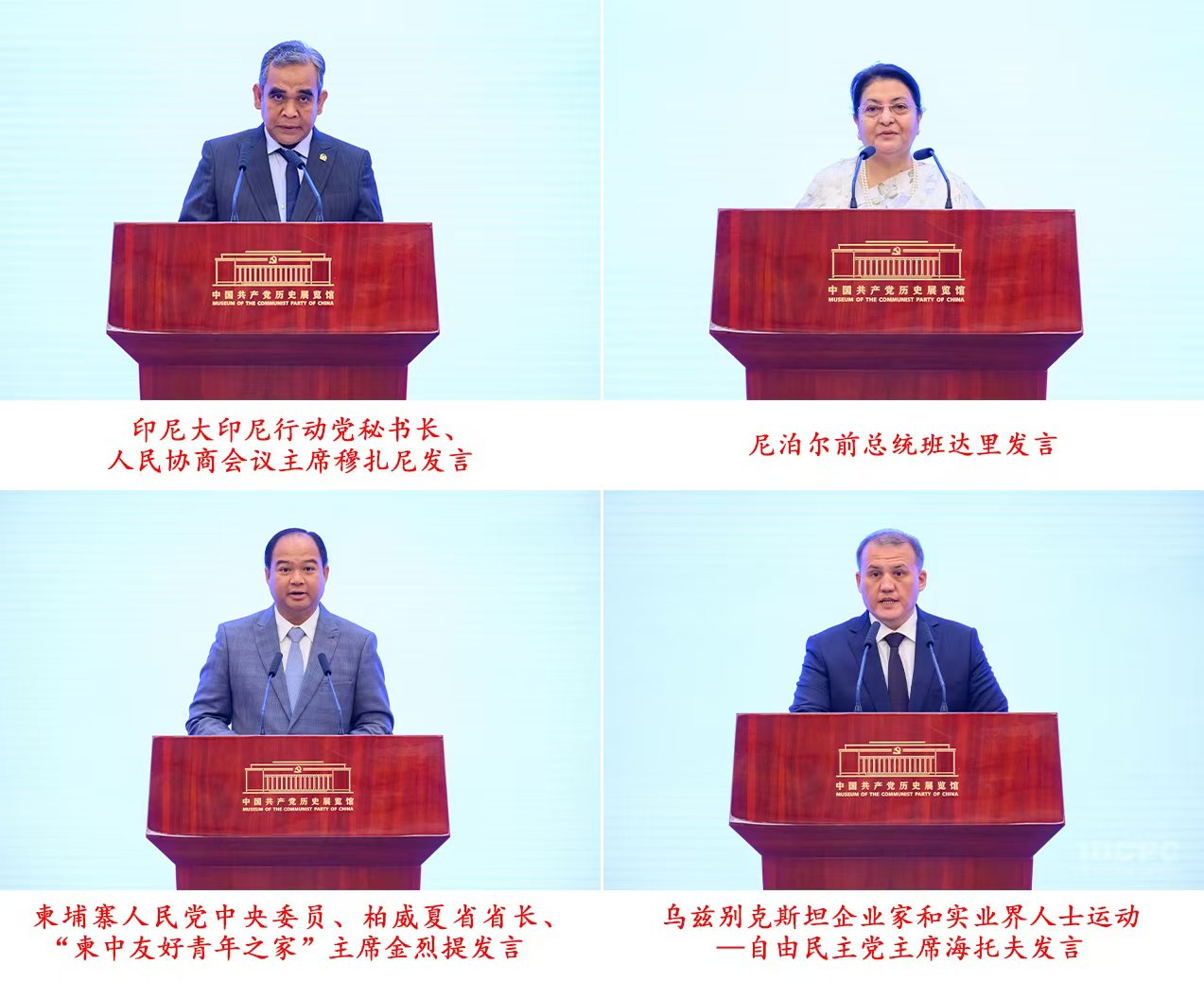
Ahmad Muzani, Secretary General of the Great Indonesia Movement Party and Chairman of People’s Consultative Assembly of Indonesia, Bidhya Devi Bhandari, former President of Nepal, Kim Rithy, Member of the Central Committee of the Cambodian People's Party (CPP), Governor of Preah Vihear Province and head of the Youth House for Cambodia-China Friendship, and Aktam Akhmadovich Khaitov, Chairman of the Movement of Entrepreneurs and Businessmen – Liberal Democratic Party of Uzbekistan (UzLiDeP), addressed the event.
Muzani said, China's culture and diplomacy genes of peace, respect and equality have been passed down to this day, injecting continuous impetus and confidence into peace and development in Asia. Indonesia is willing to establish closer cooperation with China and other countries in the region in the political, social and economic fields, jointly support regional stability and development, and work together to turn Asia into a home full of hope and prospects.
Bhandari said, the historical experience and contemporary practice of the CPC are of great reference to Nepal's promotion of economic and social transformation and also provide important reference for developing countries around the world to explore the path of modernization. China's long-term vision of building a community with a shared future with neighboring countries has set an important example for regional countries to unite and assist each other and jointly build Asia.
Kim Rithy said, in a period of global turbulence and change, Asia has demonstrated the vitality of cooperation and development, which is precious. Cambodia regards China as a trustworthy strategic partner and is willing to actively participate in high-quality Belt and Road cooperation, further align with the Global Development Initiative, the Global Security Initiative and the Global Civilization Initiative, and fully leverage the role of the political party channels to jointly promote the openness, peace and inclusiveness of Asia with all parties in the region.
Khaitov said, the Asian continent is home to more than half of the world's population and is becoming the core area of global change. Today's Asia is not only catching up with the West but also moving forward at a rapid pace according to its own development rhythm. Neighborhood relations are the foundation for a country's sustainable development. Under the leadership of the CPC, China is becoming a key stabilizing force for peace and development in Asia and the world.
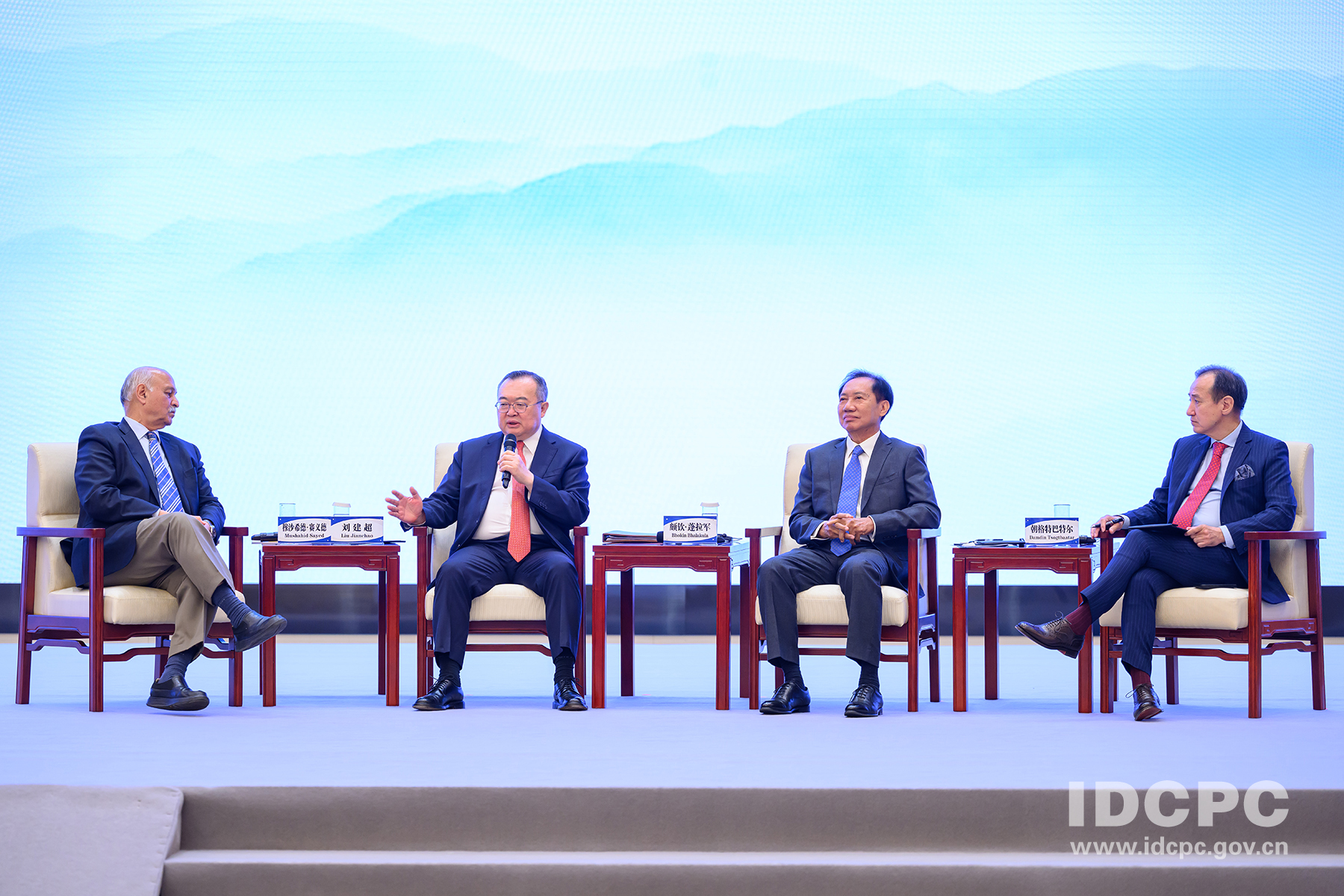
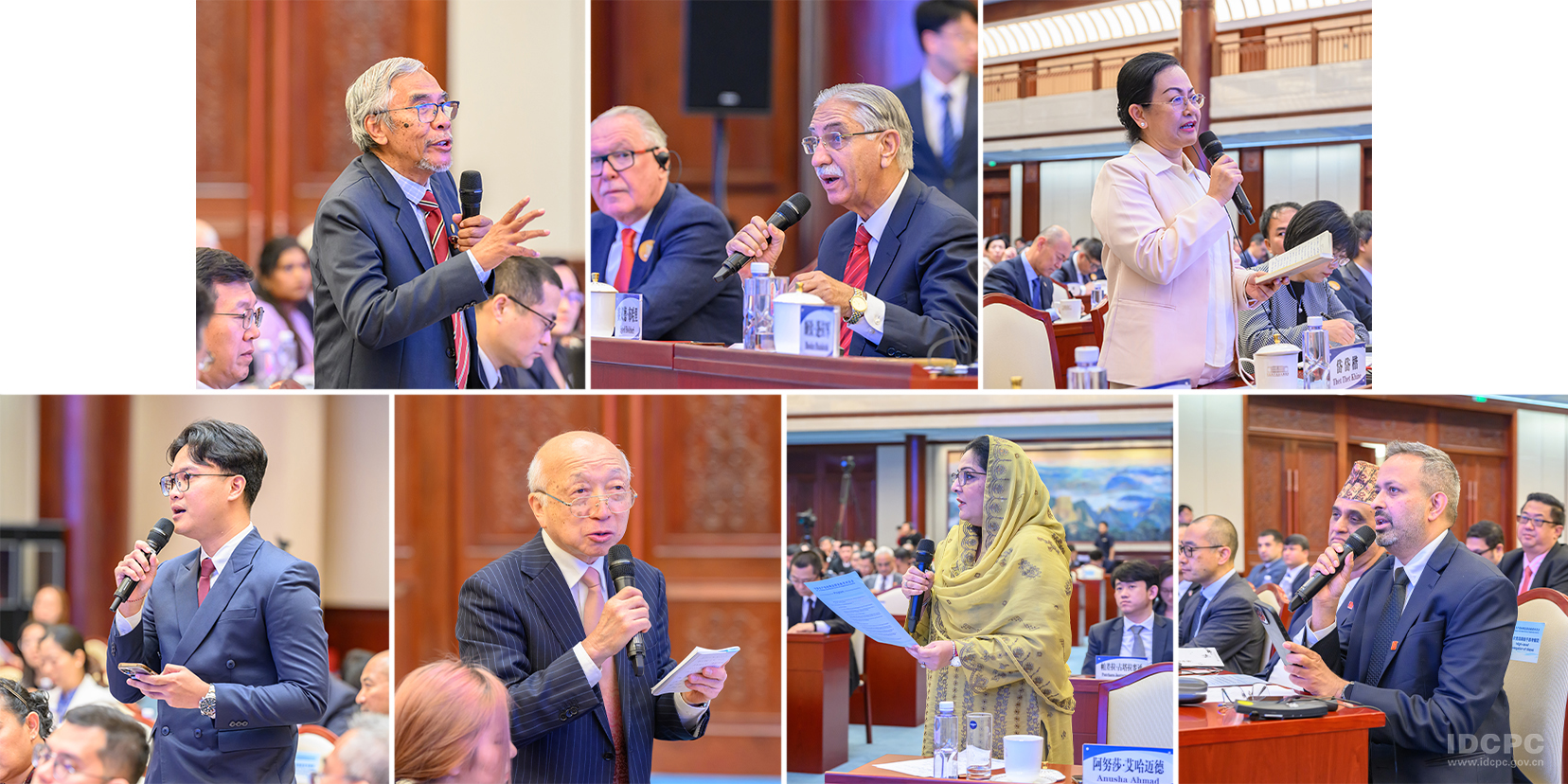
During the dialogue session, Liu Jianchao, along with Bhokin Bhalakula, former President of the National Assembly of Thailand, former Deputy Prime Minister and President of Thai-Chinese Culture and Economy Association, Damdin Tsogtbaatar, Head of the Standing Committee on Justice of the State Great Khural and former Foreign Minister of Mongolia, and Mushahid Hussain Syed, former Minister of Information of Pakistan and Co-Chairman of the Standing Committee of the International Conference of Asian Political Parties, expounded their views on new opportunities and challenges facing the region and China's relations with its neighboring countries, and answered questions from the audience.
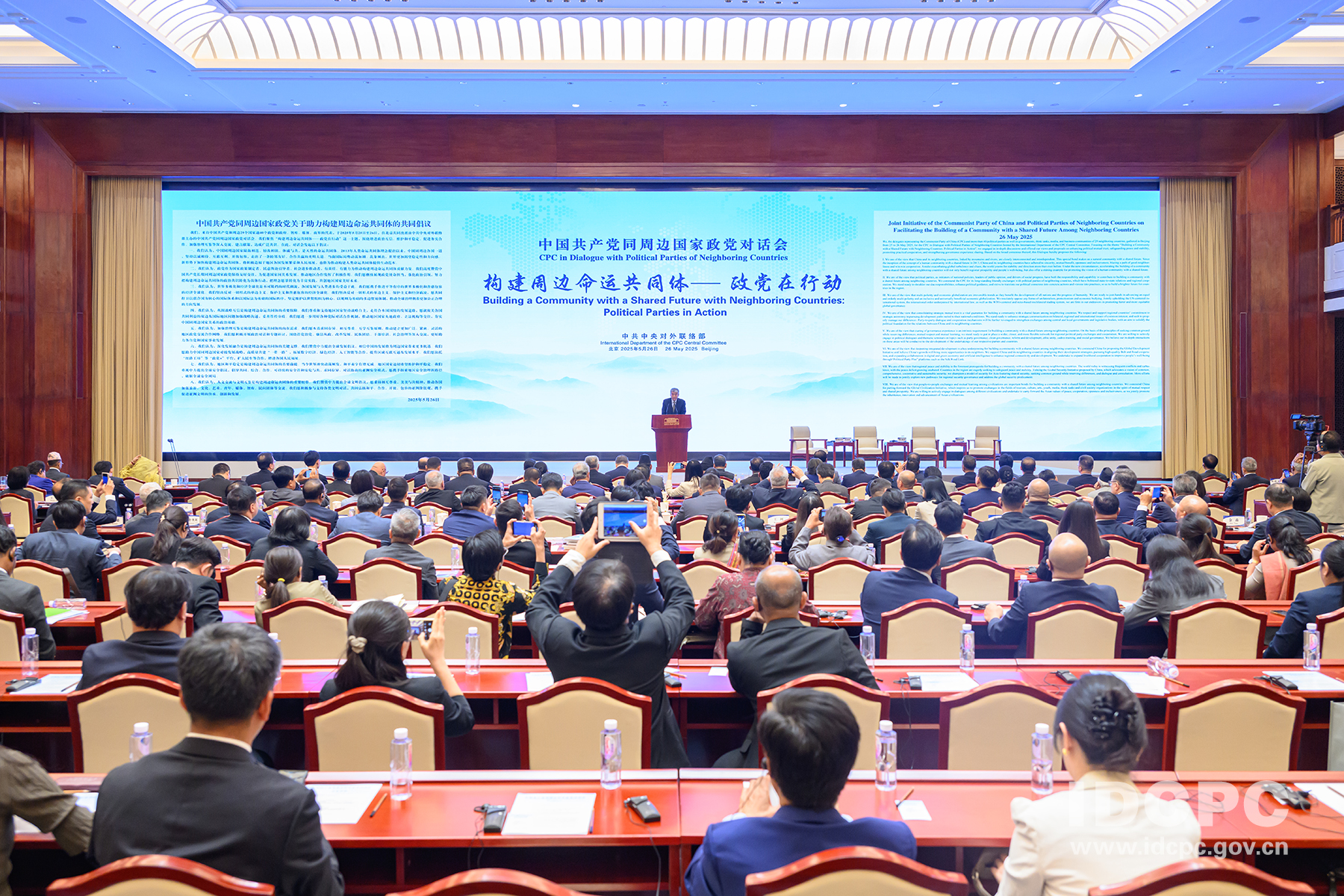
The meeting adopted the Joint Initiative of the Communist Party of China and Political Parties of Neighboring Countries on Facilitating the Building of a Community with a Shared Future Among Neighboring Countries, emphasizing that building a community with a shared future in the neighborhood requires strategic mutual trust as an important guarantee, mutual learning in governance as an inherent need, deepening development integration as a key support, regional peace and stability as a primary prerequisite, and people-to-people and cultural exchanges as an important bond. The Initiative calls on political parties of neighboring countries to strive to translate the political consensus on building a community with a shared future in the neighborhood into concrete actions and jointly create a bright future for the countries in the region.
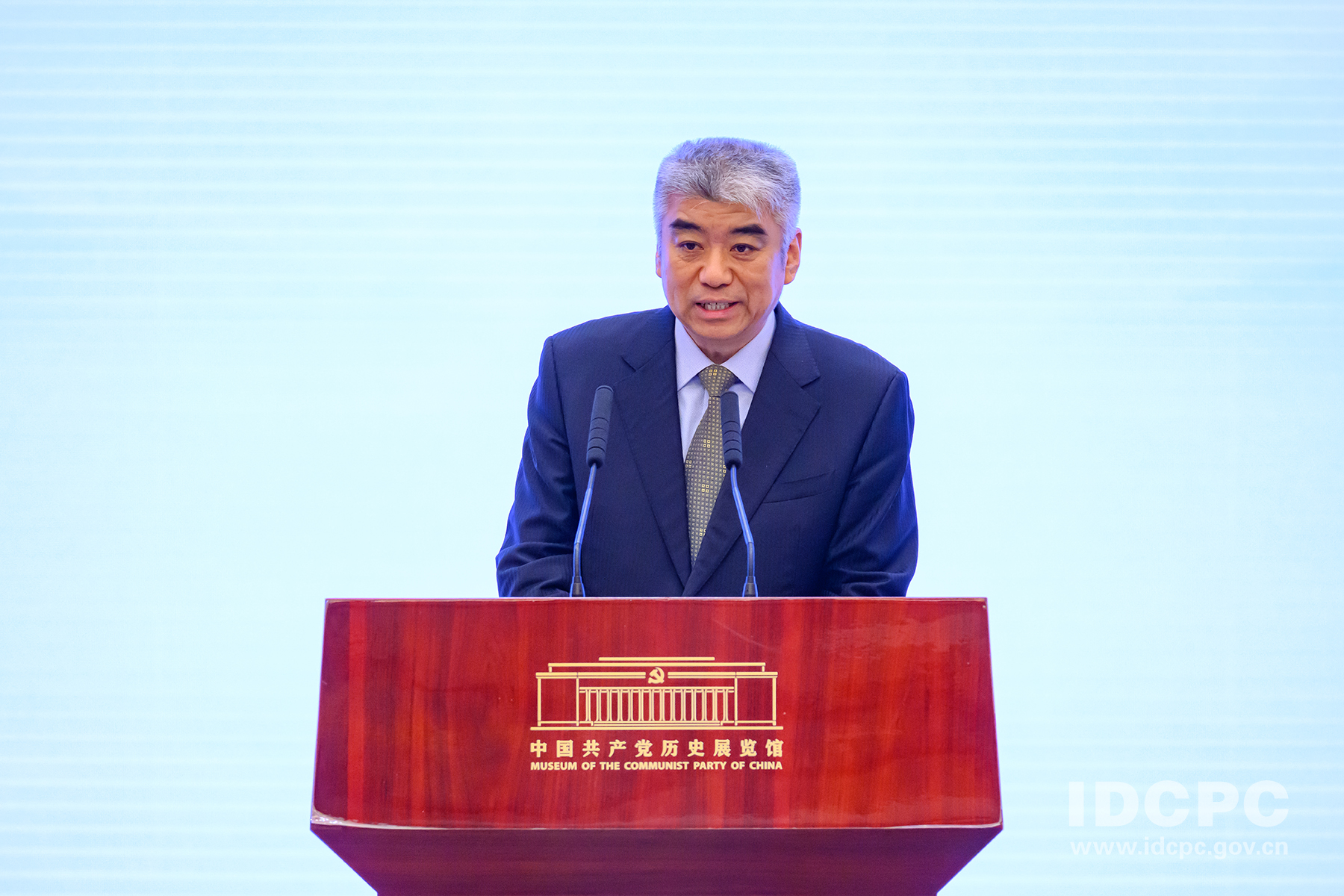
Chen Zhou, Vice-minister of the IDCPC, presided over the meeting.
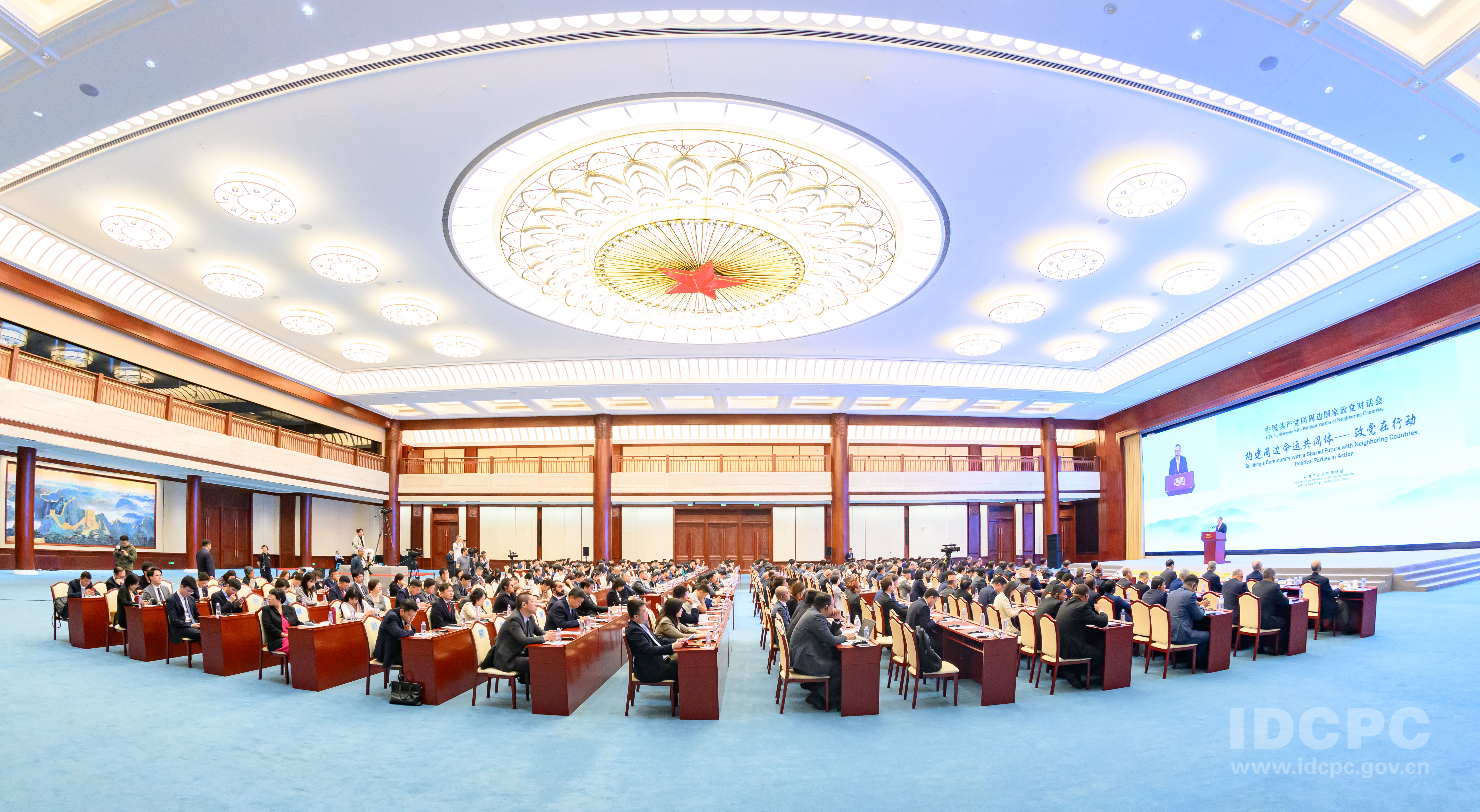
During a special session on the sidelines of the dialogue, Sun Haiyan, Vice-minister of the IDCPC, and Jiang Xiaojuan, a professor at the University of Chinese Academy of Social Sciences and former Deputy Secretary-General of the State Council, exchanged views with foreign guests on topics such as China's economic prospects and opportunities for opening up and cooperation.





















